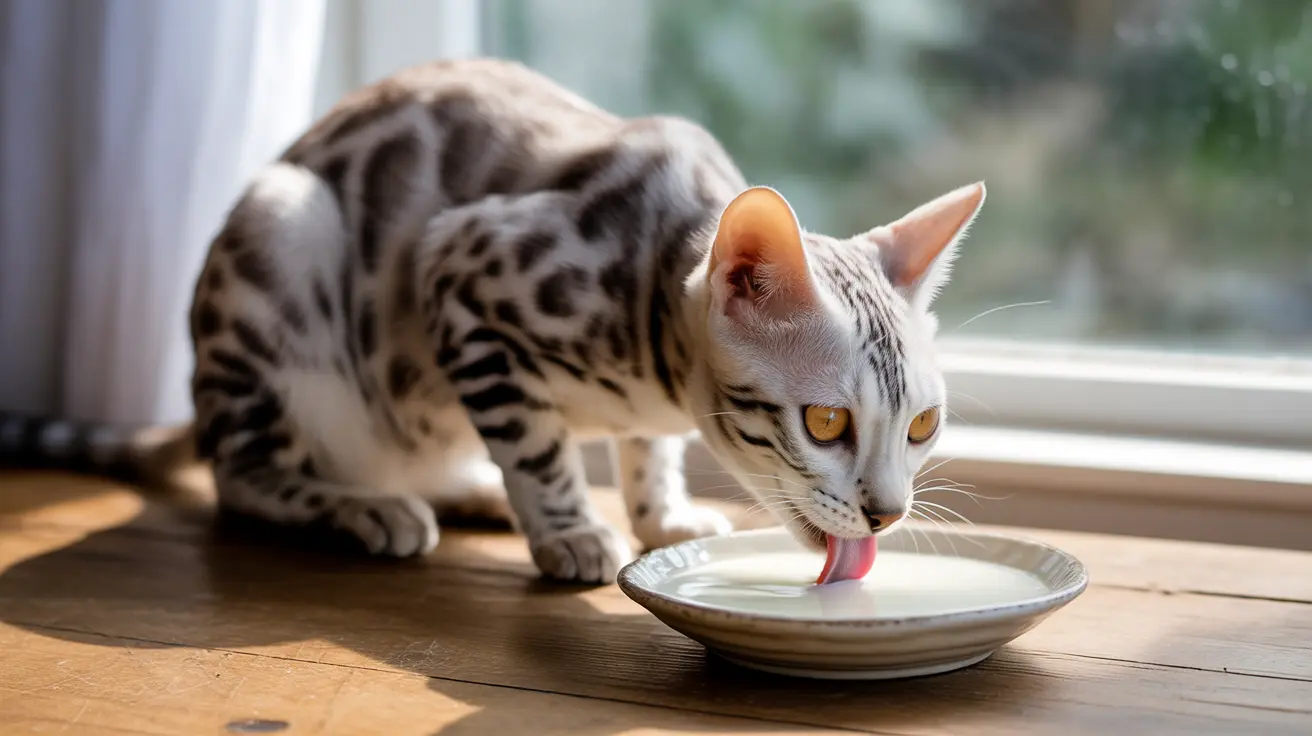As more pet owners explore natural supplements for their feline companions, goat milk has gained attention as a potential dietary addition. However, the question of whether cats can safely consume goat milk daily requires careful consideration of both benefits and risks.
In this comprehensive guide, we'll explore the safety, benefits, and proper serving guidelines for giving goat milk to cats, helping you make an informed decision about including this supplement in your cat's diet.
Understanding Goat Milk's Benefits for Cats
Goat milk offers several potential advantages for feline health. It contains higher levels of essential nutrients compared to cow's milk, including easily digestible proteins, vitamins A, B, and D, and minerals like calcium and potassium. The natural enzymes and probiotics present in goat milk can support digestive health and immune function.
Additionally, goat milk's smaller fat globules and lower lactose content make it generally easier for cats to digest than other dairy products. This unique composition can be particularly beneficial for cats with sensitive stomachs.
Daily Goat Milk Consumption: Benefits and Risks
While goat milk offers nutritional benefits, veterinary experts generally recommend against daily consumption for most cats. The primary concerns include:
- Potential digestive upset from regular dairy intake
- Risk of nutritional imbalance if used excessively
- Unnecessary caloric intake that could lead to weight gain
- Possible lactose intolerance, even with lower lactose content
Safe Serving Guidelines for Cats
If you choose to offer goat milk to your cat, following these guidelines can help ensure safety:
- Start with small amounts (1-2 teaspoons) to test tolerance
- Limit servings to 2-3 times per week rather than daily
- Use plain, unsweetened goat milk without additives
- Monitor for any signs of digestive upset
- Always provide fresh water as the primary source of hydration
Alternative Ways to Supplement Your Cat's Diet
Instead of daily goat milk, consider these alternatives for supporting your cat's nutrition:
- High-quality wet food for hydration
- Veterinary-approved supplements specific to your cat's needs
- Specially formulated cat milk products
- Fresh water fountains to encourage drinking
Frequently Asked Questions
Can cats safely drink goat milk every day without health risks?
While goat milk is generally safer than cow's milk, daily consumption is not recommended. Most veterinarians suggest limiting goat milk to 2-3 times per week to prevent potential digestive issues and maintain a balanced diet.
How much goat milk can I give my cat as a daily supplement?
If offering goat milk, limit portions to 1-2 tablespoons per serving. However, daily supplementation is not advised; instead, offer it as an occasional treat a few times per week.
What are the benefits of feeding goat milk to cats compared to cow's milk?
Goat milk contains less lactose, smaller fat globules, and more easily digestible proteins than cow's milk. It's also rich in vitamins, minerals, and beneficial enzymes that support feline health.
How can I introduce goat milk to my cat's diet to avoid digestive upset?
Start with very small amounts (1 teaspoon) mixed with their regular food. Gradually increase the amount over several days while monitoring for any adverse reactions.
What signs indicate my cat might be lactose intolerant or allergic to goat milk?
Watch for symptoms such as diarrhea, vomiting, gas, bloating, or changes in appetite. If any of these occur, discontinue goat milk and consult your veterinarian.
Conclusion
While goat milk can offer nutritional benefits for cats, it's best served as an occasional supplement rather than a daily addition to their diet. Focus on providing a balanced, species-appropriate diet, and consult with your veterinarian before making any significant changes to your cat's nutrition plan.






